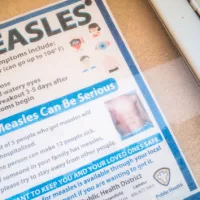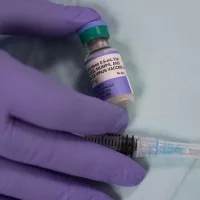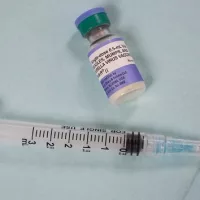(WASHINGTON) — Governors in several states have recently announced plans to eliminate some unhealthy foods from their food stamps programs, creating momentum for a key component of Health and Human Services Secretary Robert F. Kennedy’s “Make America Healthy Again” agenda.
The governors of Arkansas, Idaho and Indiana on Tuesday all said they would submit a waiver to the United States Department of Agriculture requesting permission to prevent Supplemental Nutrition Assistance Program recipients from using the money to buy candy and soft drinks.
The move follows a similar announcement from the governor of West Virginia last month.
Secretary of Agriculture Brooke Rollins, whose department oversees SNAP, has said she would approve such waivers. She appeared at a press conference Tuesday alongside Arkansas Gov. Sarah Huckabee Sanders, as Sanders announced her submission of a waiver.
The same morning, Kennedy appeared with Indiana Gov. Mike Braun for a similar announcement.
“You’re setting the stage at the federal level,” Braun told Kennedy.
“This isn’t a usual top-down one-size-fits-all public health agenda,” he said. “We’re focused on root causes, transparent information and real results. We’re taking on big issues like diet-related chronic illness.”
Eating too much added sugar can contribute to health problems such as obesity, type 2 diabetes and heart disease. Guidance from the USDA suggests that added sugar should not represent more than 10 percent of the daily caloric intake for children or adults. Based on a 2,000-calorie intake, that would be 200 calories or approximately 12 teaspoons. However, according to the Centers for Disease Control and Prevention, children are eating 17 teaspoons of added sugar per day on average as of 2017-2018.
Kennedy and Rollins have promoted changes to SNAP and have publicly encouraged governors to submit waivers.
Kennedy appeared last month with West Virginia Gov. Patrick Morrisey as he announced he would submit a waiver to ban soda from SNAP.
“The message that I want to give to the country today and to all the other governors is, get in line behind Governor Morrisey and apply for a waiver to my agency, and we’re going to give it to you. That’s the way we’re going to win this,” Kennedy said that day.
As it stands, according to the USDA website, SNAP recipients can use the money to buy fruits and vegetables; meat, poultry and fish; dairy products; breads and cereals; “other foods such as snack foods and non-alcoholic beverages”; and seeds and plants.
SNAP money may not be used to purchase alcohol or tobacco, among other things.
Experts say the state efforts to add soda and candy to the prohibited list is likely to be effective in shifting SNAP recipients away from junk food.
“If they have to spend their own money on junk food, they’re not going to buy as much junk food,” Marion Nestle, a professor emerita of public health at New York University, told ABC News.
But Nestle indicated it could be difficult for states to define what should be excluded from SNAP benefits.
“Candy can have nuts, it can have raisins, it can have other kinds of things in it that are real foods and are healthier,” she said.
An Idaho bill signed Tuesday by Gov. Brad Little defined candy as “a preparation of sugar, honey, or other natural or artificial sweeteners combined with chocolate, fruits, nuts, or other ingredients or flavorings in the form of confections, bars, drops, or pieces.”
The bill’s definition of candy does not include “any item that contains more than ten percent flour by weight or requires refrigeration.”
Dariush Mozaffarian, director of the Food Is Medicine Institute at Tufts University, told ABC News, “We need to try a lot of different things” to make Americans healthier, and expressed optimism about the state-level efforts to overhaul SNAP.
“If we make the program meet all its goals, including nutrition, which is in its name, then that strengthens the program,” he said.
Vani Hari — a healthy food activist also known as the Food Babe, the founder of Truvani and a front-facing leader of the MAHA movement — called this “a do-or-die moment” for American health.
“We need to question any legislator that doesn’t sign these bills, there is no legitimate reason to allow high fructose corn syrup water in government funded nutritional dollars. Governors who stand with Secretary Kennedy’s vision of MAHA will change the course of history of American health – it’s a do or die moment and we’ve never had momentum like this before,” Hari told ABC News in a statement.
Copyright © 2025, ABC Audio. All rights reserved.













